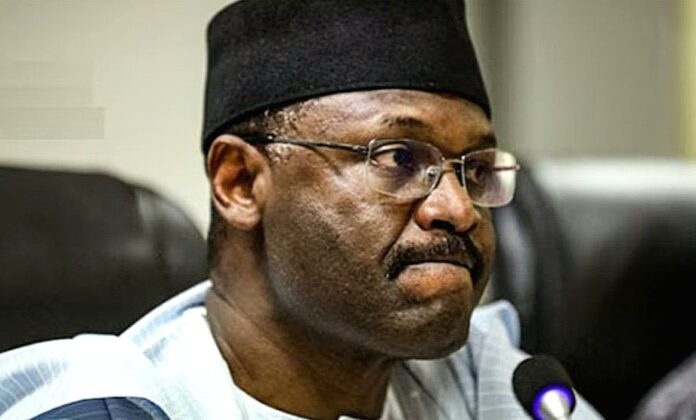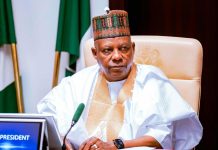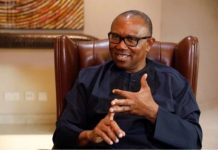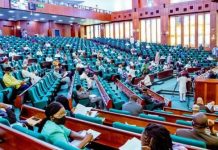On November 11, 2023, off-season governorship elections were held in three states of the union.
Nigerians were promised a better, more seamless, and transparent election process by the Independent National Electoral Commission (INEC) prior to the polls.
However, the results of the polls conducted in the states of Bayelsa, Imo, and Kogi on November 11 resemble the anticlimax of the presidential election on February 25, when the public’s high expectations for the election—which resulted in a crush of people at registration centers eager to obtain Permanent Voter Cards—were dashed.
2023 hasn’t been a good year for the nation’s elections thus far. Nigerians had great expectations and a strong sense of confidence in INEC, the electoral umpire, heading into the February 25, 2023, presidential and national assembly elections. But the polls were seriously flawed, marked by disruptive incidents, impunity, and ugly reports that incited voter resentment and drew criticism from national and international watchdogs. The general election of 2023 ultimately appeared to be the worst in the nation’s history.
Nonetheless, Nigerians’ expectations were high, which made their resentment of INEC justified. Given the constitutional authority granted to the electoral body—particularly through the Electoral Act—INEC chairman Professor Mahmood Yakubu and his subordinates should fulfill their pledge to hold a general election that would have, at minimum, given the populace cause for optimism.
To have a respectable election, everything was done. INEC made sure the Electoral Act Amendment Bill was signed and released election guidelines requiring polling place results to be transmitted. In addition, the use of technology to stop human-based election tampering (like ballot box snatching and results falsification at collation centers) and electoral violence was repeated often.
The Bimodal Voter Accreditation System (BVAS), which was piloted in the Anambra, Ekiti, Osun, and other by-elections, was introduced by the Yakubu-led INEC, and the majority of Nigerians were confident that their votes would count.
Full of hope, the younger generation hurried to obtain Permanent Voter’s Cards (PVC), resulting in 9,518,188 new registrants being registered. Preceding the national voter registration on February 25, the number increased from 84,004,084 to 93,522,272 in just a single year due to the overwhelming optimism.
Sadly, the exciting build-up came to an abrupt stop when the electoral umpire horribly failed to transmit the election results as promised. As a result, a number of election cases reached a court of law.
INEC pledged following the general elections to enhance election administration as needed. The commission pledged to operate with more transparency. And one would anticipate that INEC would have a chance to repair its reputation during the off-season election.
In fact, the electoral body promised things along those lines. For example, Professor Yakubu had promised that the results of the governorship elections in Bayelsa, Imo, and Kogi would be posted on the INEC Result Viewing Portal and that the commission would adhere to the laws regarding accreditation and results collation during the state’s elections.
“We are conducting this mock because the procedure is as stipulated by law, which calls for electronic accreditation and results uploading on the IREV portal,” he stated.
The results of November 11th proved to be a farce, and the extent of electoral fraud that occurred during that day’s voting has shocked Nigerians.
In the elections, there were slippages. Regarding the data presented on the IReV, there were disagreements. There were many accusations of pre-written results. Even worse, INEC upheld the contentious results in spite of purported proof of excessive voting, voting irregularities, and blatant demonstrations of security agencies’ collusion in ballot box snatching.
the incident in which pre-recorded result sheets were allegedly discovered in the possession of certain INEC officials.
In Polling Unit 020 in Eika/Ohizenyi, Okehi Local Government Area of the state, one of the accredited observers from YIAGA Africa raised a concern regarding the spread of the pre-filled result sheet.
In the Eni Ward of the Ogori/Magongo Local Government Area, PU 004 saw the same development.
Videos of security officers in Imo purportedly aiding the ruling government in sabotaging the voting process and stealing election supplies circulated.
In one such instance, ballot boxes and other election supplies were taken by thugs purporting to be affiliated with the All Progressives Congress (APC) at the Umuchoko Umuohiagu Junction Polling Unit in Ward 11 of Ngor Okpala Local Government Area (LGA).
This is said to have occurred following the vote count, in which the PDP had 65 votes to the APC’s 35 and the LP’s 17 votes.
Some political parties have since rejected the poll results in the wake of the alleged massive manipulation and rigging.
The Action Alliance (AA), led by Fred Ambo, denounced the results of the Kogi State election, calling it a fraudulent process.
“A free and fair election was promised by the INC, but all we witnessed was a farce.” He bemoaned, “There was ballot box snatching, and the results were predetermined to favor a certain political party before the election even started.
Likewise, PDP candidate for governor, Dino Melaye, disapproved of the election and demanded that it be called off.
“There was no election,” he declared; “prepared result sheets were available prior to the election, accreditation was completed manually, and BVAS was not utilized.”
“The elections have to be called off by INEC. There is proof to support it. Gross incompetence has been displayed by INEC. You can’t rely on it. It is compromised and biased.
Along the same lines, Social Democratic Party candidate for governor, Murtala Ajaka, claimed that INEC had rigged the results to benefit APC candidate Usman Ododo.
“INEC officials are the ones who tainted this election,” he declared.
The situation is equally unappealing in Imo State. The APC, the state’s ruling party, was allegedly planning to rig the November 11 election, according to the PDP candidate for governor, Senator Samuel Anyanwu, and his organization shortly before the polls.
In an attempt to rig the election, he accused Governor Hope Uzodimma of bringing into Imo State more than 4,500 pre-loaded Bimodal Voter Accreditation Systems (BVAS).
Anyanwu disapproved of the election results due to a number of reported irregularities in some polling places, including ballot box snatching and widespread vote buying. He specifically charged ruling All Progressive Party (APC) party operatives with “coercing voters to vote for the party.”
“I have proof that one of the thugs is an Assembly member,” the man declared. The lawmaker’s identity card came off during the process of grabbing the ballot boxes, and I am holding it here.
“I urge INEC to take into account the evidence at hand and nullify the election results in the impacted regions.”
The candidate for the Labour Party, Athan Achonu, echoed his call, claiming that security personnel were working with the APC to rig the results of the poll.
Numerous incidents are documented, including the beating of a police officer by voters for trying to steal a ballot box. Yesterday, our democracy was violated by the security agencies of this country. This morning, I’m still getting over the extreme shock.
“It was not INEC; it was more like a security agency coup; the DSS, police, and military raped our democracy,” he bemoaned.
“Let’s save the drift into anarchy; let’s save our country and her democracy,” Achonu continued. “We call on the INEC Chairman, Prof. Mahmood Yakubu, to cancel the purported results. There was no election yesterday.”
However, INEC proceeded to announce APC candidate Hope Uzodimma as the victor of the Imo State gubernatorial contest. Uzodimma defeated his rivals from the PDP and LP, who scored 71,503 and 64,081, respectively, with 540,308 votes, according to the INEC results.
INEC declared APC’s Usman Ododo the victor in Kogi, with 446,237 votes, defeating SDP’s Muri Ajaka (259,052) and PDP’s Dino Melaye (46,362). INEC also found nothing wrong with the way the polls were conducted.
In the court of public opinion, the electoral umpire has been ridiculed.
Dr. Emeka Nwosu, a political analyst and former Special Advisor on Public Affairs and Media to former Senate President Evans Enwerem, called the November 11 election process embarrassing and unacceptable.
All things considered, Nigerians’ faith in INEC is eroding. That’s my viewpoint. Because we’re only talking about three states out of the 36 in the federation, people assumed that these off-circle elections would give INEC a chance to improve its reputation in light of what happened during the general elections.
Elections were being held in just three states, so it was simple to flood those areas with security personnel dispatched from other federation states. As a result, nobody anticipated any problems or attempts to sabotage the process, even in the presence of security personnel. We weren’t there, but the reports we heard indicated that it was even more chaotic than it had been in the past, despite the security presence.
For the first time, prefilled result sheets are mentioned in reports from locations in Kogi State, for example. This information regarding the private documents that were supposed to be delivered on election day has never been reported before. How was it obtained by the election management team, which included youth corpers, the presiding officers? Millions of naira were discovered in the belongings of a few of them.
According to the information we have, electronic results transmission is unmatched. According to the Supreme Court’s ruling, INEC is in charge of choosing which method to employ in any event. It is embarrassing and inappropriate for them to alter their rules in the middle. Therefore, to be really honest, what we witnessed was not an election.
In evaluating the Imo scenario, in which Uzodimma won a landslide victory and cleared all 27 local government areas, he stated: “My assessment of the situation is that opposition parties in Imo are very weak.” Their candidates weren’t very good, in my opinion. As you could see, the notable individuals in the PDP did not appear at any of their rallies. They seem to have disowned the candidate. People knew even before the election that they wouldn’t be able to mount a serious challenge to the incumbent, Hope Uzodinma.”
“You are aware of the incumbent’s power; he made the most of it,” he said. Hope Uzodimma might have benefited somewhat from the opposition’s weakness and the incumbent’s ability to allocate resources. It’s no secret that there is hunger in the land. It appeared from some of the analyses I viewed that voters were being bought off for N2000 and N3000.
He has a poor outlook for the upcoming elections.
The main takeaway is that there is still more work to be done to reform our electoral system. I’m not sure how we’re going to accomplish this, as the last time people came out, they trusted INEC’s claims of electronic results transmission. Numerous individuals talked about the BVAS and thought their votes would count, but you saw the results.
We are now back at the beginning, discussing excessive voting. which indicates that there is no deployment of the BVAS. I find it quite depressing. How we’re going to do this correctly, I have no idea. He stated, “Because even if you decide to go to court, you won’t get any results there.”
He believes that a paradigm shift is necessary to move forward.
“Our only option is to potentially have to deal with this winner-take-all problem. We might have to switch to proportional representation, in which a candidate’s power is determined by the number of seats they have won. similar to the system of parliament. so that the winner would no longer always come out on top,” he
Join Television Nigerian Whatsapp Now
Join Television Nigerian Facebook Now
Join Television Nigerian Twitter Now
Join Television Nigerian YouTUbe Now





